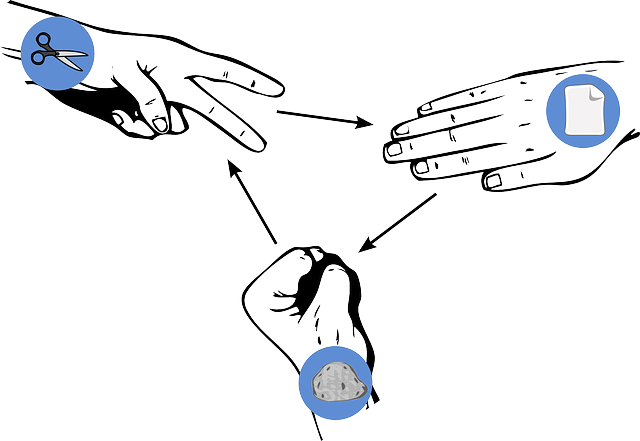In Oregon, contempt of court charges carry serious consequences with two forms: direct (deliberate order violation) and indirect (hindering justice). Behaviors like missing hearings or disrupting proceedings can lead to accusations. Defending against these requires strategic proof of lack of willful intent or minimal disruption. Individuals facing such charges should consult experienced legal professionals specializing in Oregon courtroom defense for effective guidance, navigating complex nuances and presenting compelling arguments based on unique factual circumstances. Effective communication and well-organized documentation are key to a successful defense strategy.
In Oregon, contempt charges carry significant weight, demanding a robust understanding of state laws. This article unravels the key defense arguments in Oregon contempt cases, offering insights into crucial definitions, common grounds for charges, and effective communication strategies. We explore how to build a strong defense, differentiate between willful and uncontrollable actions, and present compelling documents within the courtroom setting. For those seeking to navigate Oregon’s contempt laws, this guide provides essential tools to mount a robust courtroom defense.
- Understanding Oregon Contempt Laws: Key Definitions and Scope
- Common Grounds for Contempt Charges in Oregon Courtrooms
- Building a Defense Strategy: Challenges and Potential Arguments
- The Role of Intent: Differentiating Between Willful and Uncontrollable Actions
- Effective Communication and Document Presentation in Contempt Cases
Understanding Oregon Contempt Laws: Key Definitions and Scope

In Oregon, contempt of court is a serious legal matter that arises when an individual fails to comply with a court order or engages in disruptive behavior in the courtroom. Understanding the key definitions and scope of these laws is crucial for both plaintiffs and defendants involved in civil or criminal proceedings. Contempt can be direct, where someone deliberately violates a court order, or indirect, involving actions that hinder the court’s ability to administer justice fairly. The scope includes a wide range of behaviors, from refusing to attend court hearings to disrupting the proceedings or failing to produce evidence as ordered.
Defending against contempt charges in Oregon requires a strategic approach tailored to the specific circumstances. Courtroom defense strategies often focus on proving that there was no willful intent to disobey the court’s mandate or demonstrating that the actions, though potentially disruptive, did not significantly impede the judicial process. Navigating these complex legal issues demands a thorough understanding of state laws and procedures, making it imperative for individuals facing contempt charges to seek counsel from experienced legal professionals specializing in Oregon contempt cases.
Common Grounds for Contempt Charges in Oregon Courtrooms

In Oregon courtrooms, contempt charges are often brought against individuals who willfully fail to comply with a court order or engage in conduct that obstructs justice. Common grounds for such charges include failure to appear as ordered, non-compliance with a subpoena, or disrupting courtroom proceedings. These cases can arise from various situations, such as missing a scheduled hearing, refusing to provide requested documents, or even disruptive behavior like yelling or causing a commotion during trials.
Court defense in Oregon for contempt charges requires a strategic approach. Legal professionals often argue that their clients’ actions were not willful, but rather the result of misunderstandings or extenuating circumstances. They may also challenge the validity of the court order, questioning its clarity or fairness. Effective courtroom defenses rely on detailed documentation and testimony to demonstrate that the accused lacked intent to defy the court’s authority.
Building a Defense Strategy: Challenges and Potential Arguments

Building a robust courtroom defense strategy in Oregon contempt cases presents several challenges. One of the primary obstacles is navigating complex legal nuances and presenting a compelling case that aligns with the specific facts of each situation. Contempt of court charges are serious matters, often arising from alleged willful failure to comply with a court order. Therefore, crafting a defense requires meticulous planning and understanding of procedural rules and previous case law in Oregon.
Potential arguments for a successful courtroom defense in these cases include demonstrating good faith efforts to comply with the order, mitigating circumstances that led to non-compliance, or challenging the validity of the underlying court order. The defense strategy must address the elements of contempt, such as knowledge of the order and willful disregard for it. By presenting well-researched arguments and evidence, the accused can counter the prosecution’s case and potentially achieve a favorable outcome in an Oregon contempt proceeding.
The Role of Intent: Differentiating Between Willful and Uncontrollable Actions

In Oregon contempt cases, understanding the role of intent is crucial for a successful courtroom defense. The distinction between willful and uncontrollable actions is critical as it determines the legal consequences for the accused. Willfulness implies an intentional act or omission, where an individual knowingly violates a court order. On the other hand, uncontrollable actions refer to situations where a person could not reasonably be expected to comply due to extenuating circumstances or mental incapacity.
Defenders in Oregon contempt cases must present compelling evidence to demonstrate that their actions—or lack thereof—were not voluntary and intentional. This can involve detailing mitigating factors, such as unforeseen challenges, reasonable efforts made to comply, or any relevant psychological barriers. Such arguments can significantly impact the case’s outcome, potentially leading to a more favorable verdict for the defendant in court.
Effective Communication and Document Presentation in Contempt Cases

In courtrooms across Oregon, where contempt cases are heard, effective communication and document presentation play pivotal roles in shaping outcomes. The clarity and coherence with which evidence is presented can significantly impact a defendant’s chances of success. Lawyers representing individuals accused of contempt must be adept at translating complex legal jargon into understandable arguments for judges who often face a multitude of cases. Well-organized, concise, and visually appealing documents—including legal papers, witness statements, and exhibits—are essential tools in a courtroom defense strategy.
Judges in Oregon are tasked with navigating intricate legal matters, and the way information is presented to them can influence their decisions. Skilled attorneys recognize that organized binders, electronic files, and effective use of visual aids not only help in conveying arguments but also demonstrate respect for the court’s time and processes. This meticulous approach ensures every detail relevant to the contempt case is considered, enhancing the defense’s credibility and increasing the likelihood of a favorable outcome.






